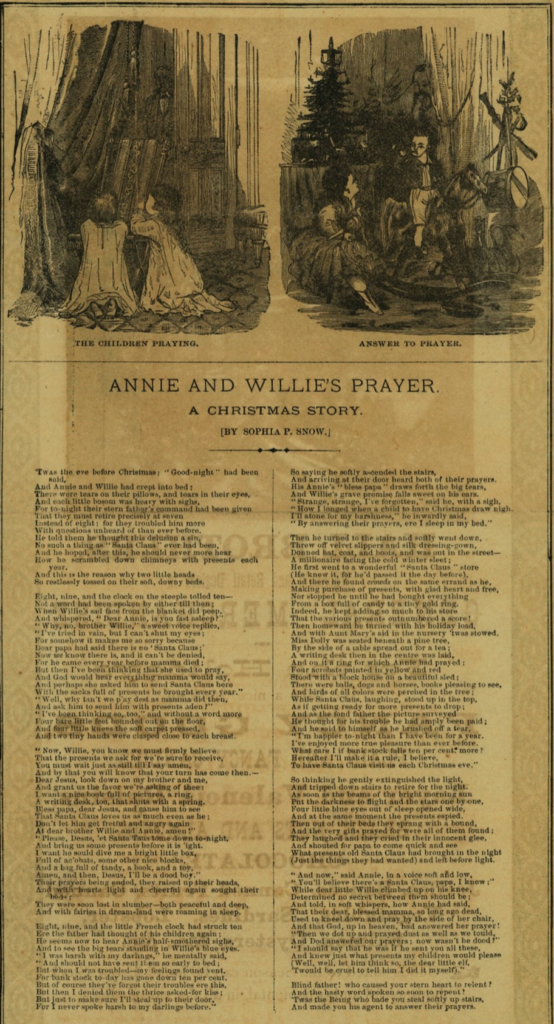Many 19th-century American religious denominations initially resisted the celebration of Christmas and the appearance of Santa Claus on Christmas Eve but, over time, most came to embrace the holiday. Some preachers found in Santa Claus the expression of Christian values of grace and generosity. Some literary works , such as the Indiana poet James Whitcomb Riley’s “Santa Claus”, elevated Santa to a near-divine status, one to whom prayers might be addressed and in whom solace might be sought.
“Most tangible of all the gods that be,/ Santa Claus – our own since Infancy!/ As first we scampered to thee – now, as then,/ Take us as children to thy heart again.”

This sort of confusion between Santa Claus and God found expression in “Annie and Willie’s Prayer”, a poem by Sophia P. Snow which was printed on the back of an advertisement for a dry goods store in the 1870s. On Christmas Eve two motherless (of course) children go to bed crying because their father has denied the existence of Santa Claus. But they persist in their belief: “Now we know there is, and it can’t be denied,/ For he came every year before mamma died.” Perhaps, they reason, their mother’s prayers had caused God to send Santa, so the two of them pray to Jesus to send gifts and the magical gift-bringer. Father, who that very day had suffered a reverse on his stock portfolio which had made him grumpy, overhears the children’s prayers and repents, going out and buying a plethora of presents. “I am happier tonight than I have been for a year. / I’ve enjoyed more pleasure than ever before./ What care I if bank stock falls ten per cent, more? / Hereafter I’ll make it a rule, I believe,/ To have Santa Claus visit us each Christmas eve.” The poetess concludes: “Blind father! who caused your stern heart to relent? / And the hasty word spoken so soon to repent? ‘Twas the Being who bade you steal up-stairs, / And made you his agent to answer their prayers.”